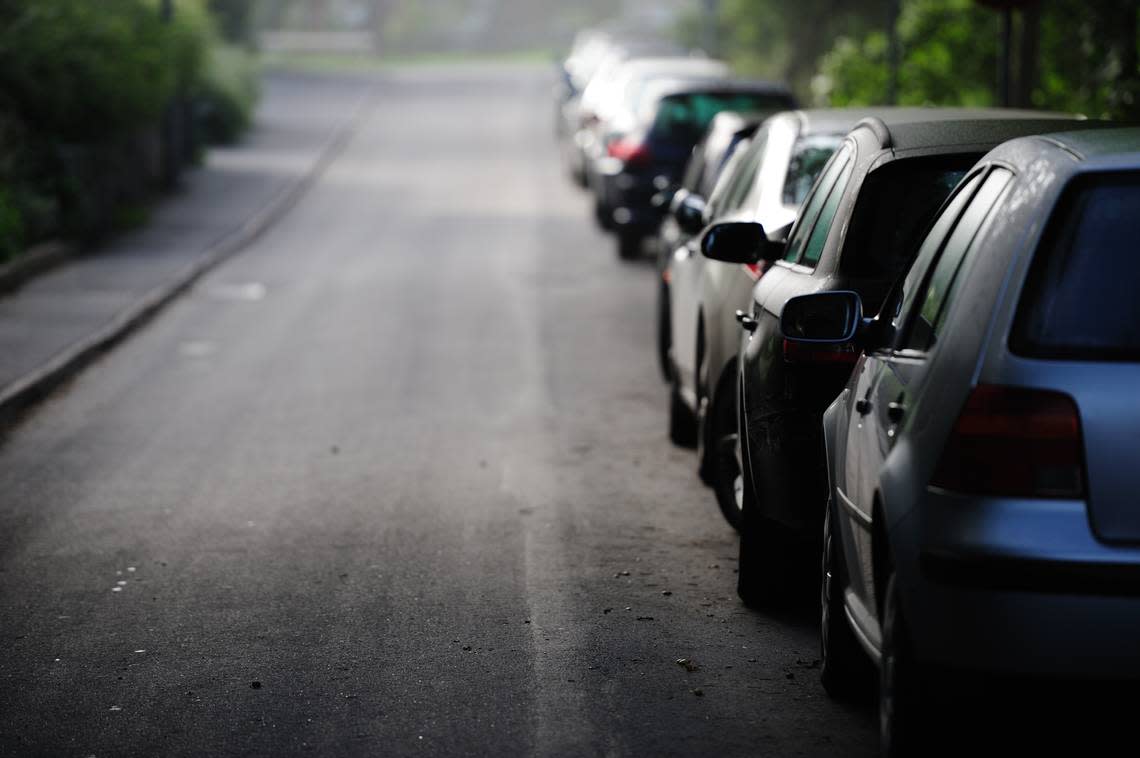Can you park in front of someone’s house in California? There’s a time limit, law says

When it comes to parking in California, there’s always a few rules to note.
Whether it is signage stating you have to pay to park or that parking is not permitted in that area, you should be aware of the state’s laws to avoid being ticketed or having your car towed.
Here’s what the law says on where it’s legal to park in front of other people’s property in California:
Where is it illegal to park in California?
According to the California Department of Motor Vehicle’s Driver’s Handbook, drivers should never park or leave their vehicle:
Where a “No Parking” sign is posted.
On a marked or unmarked crosswalk.
On a sidewalk or partially blocking a driveway.
Three feet within a sidewalk ramp for disabled people.
In front of a curb with wheelchair access.
In the diagonal lines area next to a disabled parking space.
In a space for zero-emission vehicles, unless you are driving one.
In a tunnel or on a bridge, unless signs permit parking.
Within 15 feet of a fire hydrant or a fire station driveway.
Between a safety zone and curb.
On the wrong side of the street or on a freeway, except during an emergency.
When a law enforcement officer requires a stop.
Where a stop is specifically permitted.
Can you park in front of someone’s house in California?
The DMV Office of Public Affairs said California Vehicle Code 22500 makes it illegal to park your car where it blocks public or private driveways.
“It is generally legal to park in front of another person’s house provided the vehicle does not block a driveway,” the DMV stated in an email.
As stated in California Vehicle Code 22651, no vehicle can be parked continuously at one location on any public roadway for more than 72 hours.
“This means a homeowner could have a car removed if it is parked in front of their house on a public road for more than 72 hours,” the DMV wrote.
What can you do if a car is blocking your driveway?
If a vehicle is illegally parked blocking the entrance to a private driveway and a vehicle cannot leave the driveway, Vehicle Code 22651 states a peace officer or a local authority in charge of enforcing parking laws can remove the vehicle.
“While the violation does not result in a point against someone’s driver’s license, it can result in penalties such as fines and even towing,” the DMV wrote. “The amount of the fine varies depending on the location.”
What do you want to know about life in Sacramento? Ask our service journalism team your top-of-mind questions in the module below or email servicejournalists@sacbee.com.

